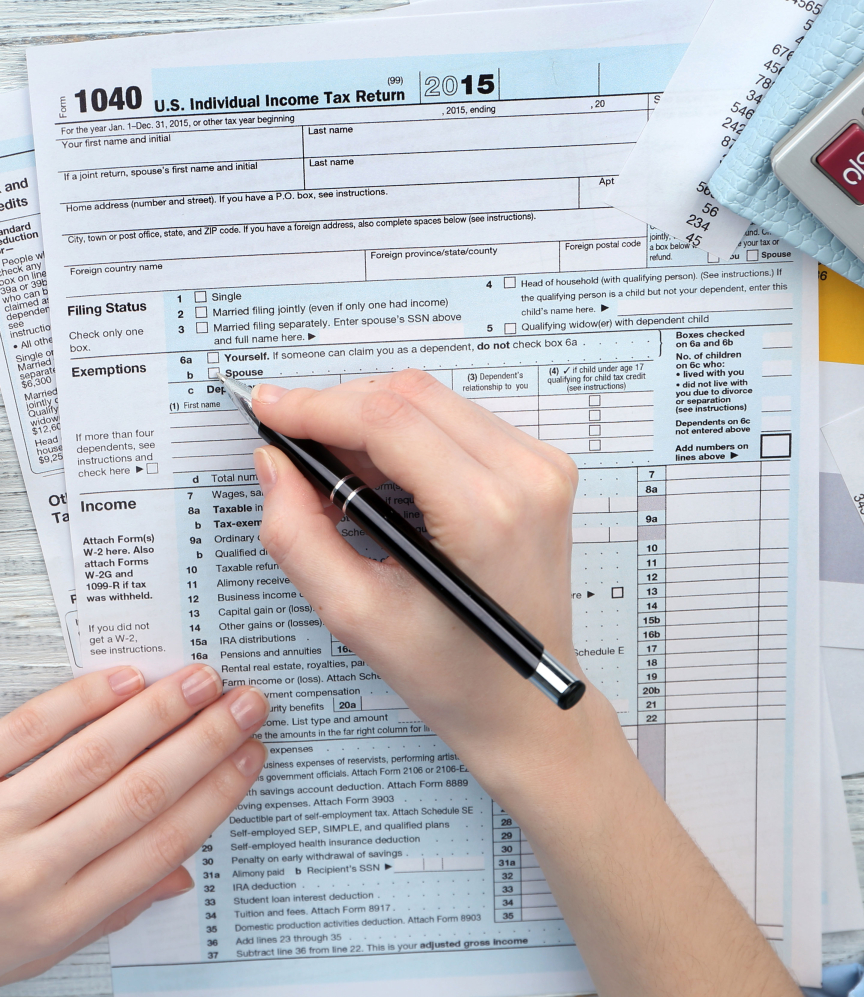What Changes in the Tax Code Mean for New Jersey
Changes to the tax code bring hefty cuts to business earnings but limit deductions on big-ticket expenses

As they file their taxes this year, New Jersey residents may be left scratching their heads, and many may be upset that their returns are smaller than expected.
The reason: this is the first year taxpayers will file under the new rules created in the Tax Cuts and Jobs Act of 2017. The new federal tax code brings significant changes – including a higher total standard deduction. The law also caps the amount of state income and local property taxes that can be deducted.
We spoke with Jay Soled, a professor and director of the master of accountancy in taxation program at Rutgers Business School–Newark and New Brunswick, to find out what New Jersey taxpayers can expect.
Q: Under the new federal tax code, what changes will New Jersey taxpayers see?
Taxpayers face a choice when filing: they can take a standard deduction or they can “itemize” their expenses that they incurred throughout the year such as state income and local property taxes they pay, charitable contributions they make and medical expenses. You cannot deduct the standard deduction and itemize; it’s one or the other.
One significant change under the new tax code is that the standard deduction amount has been nearly doubled to $12,000 for a single person and to $24,000 for a married couple filing jointly. However, for those who choose to itemize deductions, the new tax code caps the combined deduction for state income taxes and local property taxes at $10,000.
New Jersey is in one of the nation’s higher tax jurisdictions, and many New Jersey taxpayers’ combined state and local taxes exceed the $10,000 deduction threshold; these same taxpayers will not be able to deduct these taxes in their entirety if they itemize.
For 2017, 60 percent of New Jersey taxpayers took the standard deduction– a figure that will likely skyrocket in 2018. Why? To make itemizing financially sensible, a married couple whose state and local taxes meet or exceed $10,000 will still have to have incurred an additional $14,000 in deductions.
One change under the new law taxpayers may not have realized is that Congress reduced the tax rates in each of the seven income brackets. However, while the reduced tax rates may mean that you pay less taxes, at least some taxpayers should also expect a smaller refund.
Q: What are some wins for New Jersey residents under the new tax code?
Taxpayers who own certain businesses will pay less in taxes under the new law. More specifically, businesses that produce what is called qualified business income – or, nonsalary income – will get a 20 percent deduction on their business earnings. For example, if a business owner generates $100,000 of qualified business income, they would only have to pay taxes on $80,000. Business owners did not have this benefit under the old tax code.
Another new benefit is a way around paying capital gains taxes – the taxes you’d pay on the money you earn from selling your capital investments such as real estate. An investor can defer – and, in some cases, eliminate – paying federal taxes on capital gains by taking those gains and reinvesting them in what the new code calls qualified opportunity zones.
Q: What about child tax credits and exemptions for dependents?
Taxpayers can no longer claim personal exemptions for dependents. Instead, taxpayers who earn less than $200,000 (or $400,000 if married and filing jointly) can claim a $2,000 tax credit per child – double the amount of the 2017 tax credit.
Q: Are there other deductions that the new tax code affects?
Medical expense deductions are still permissible, subject to certain thresholds, similar to what they were under the old code.
Business entertainment expenses used to be subject to a 50 percent deductible limitation. For example, taxpayers used to take clients out to box seats at sporting events or other expensive entertainment outings and, essentially, the government was underwriting half the expense of those outings. Under the new law, such expenses are no longer deductible at all.
Miscellaneous itemized deductions are also no longer deductible until the new code expires at the end of 2025. These deductions used to include such items as unreimbursed employee expenses—for example, business travel expenses that your employer does not reimburse.
Charitable deductions have also changed. In 2017, taxpayers couldn’t deduct charitable contributions beyond 50 percent of their adjusted gross income. Under the new law, Congress has raised this figure to 60 percent, depending on a number of factors, including the type of organization to which the contribution is made.
Q: Do you think many New Jerseyans will see a big difference in their taxes owed in 2018?
Keep in mind that there’s an alternate set of federal tax rules that prevents high-income earners from using deductions and tax breaks to eliminate their tax liability: it’s called the alternative minimum tax (AMT) that many New Jersey taxpayers have historically been subject to.
In 2018, the AMT applies to married couples who earn more than $191,500 and single taxpayers who earn more than $95,750. Taxpayers must calculate their taxable income twice—once under the regular rules and again under AMT rules (which reduces or eliminates the ability to take certain deductions, including state and local taxes), and they pay whichever figure is higher.
The 2017 Tax Cuts and Jobs Act dramatically increased AMT exemption amounts, making it far more unlikely that taxpayers will be subject to it in 2018.
In short? Most New Jersey taxpayers won’t see a significant difference in the taxes that they owe this year.